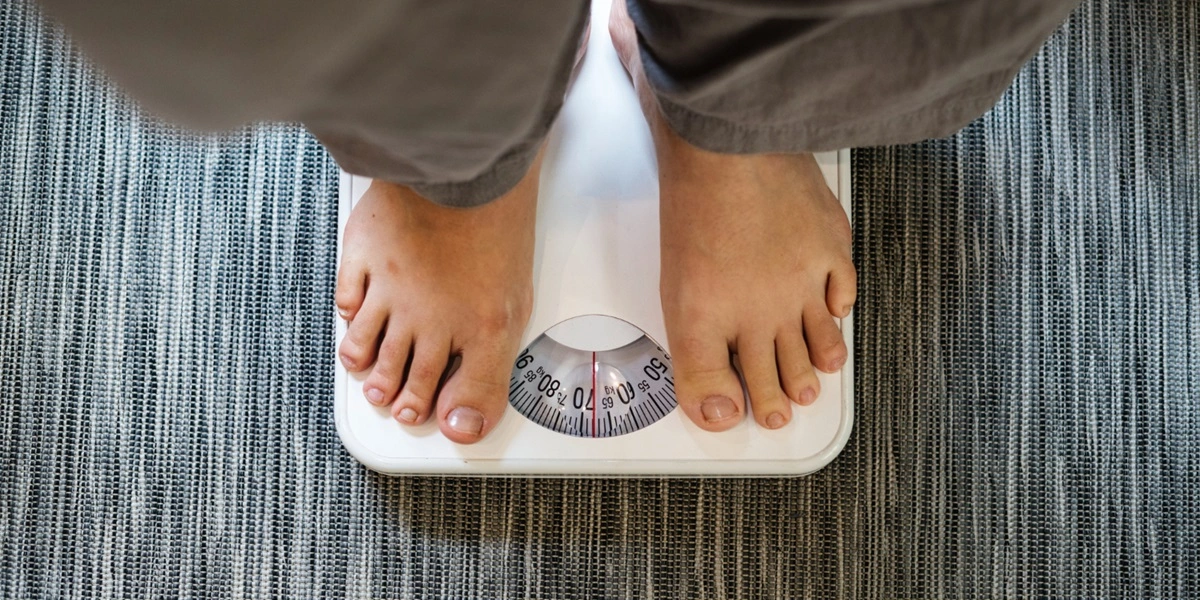Understanding Weight Management in Diabetes: When Losing Weight Isn’t Always the Goal

Managing diabetes often involves maintaining a healthy weight. For many people with type 2 diabetes (T2DM) or insulin resistance (IR), being overweight or obese is common, and doctors usually recommend losing weight to help control blood sugar levels.
However, not everyone with diabetes needs to shed pounds. In fact, some individuals may need to gain weight, especially if they are underweight (BMI less than 18).
Let’s explore why weight changes occur in diabetes and what you should do if you experience unexpected weight loss.
Why Weight Matters in Diabetes?
Weight plays a crucial role in managing diabetes. Excess weight can make it harder for the body to use insulin effectively, leading to higher blood sugar levels.
Losing weight can improve insulin sensitivity and help control diabetes. However, if you are already underweight, specifically in those cases, losing more weight can be harmful and may signal underlying health issues.
What are the Reasons for Weight Loss in Diabetes?
Weight loss in people with diabetes can happen for different reasons. It might be intentional, such as following a fad diet to lose weight quickly.
Alternatively, it can be unintentional or without any self-initiated efforts to lose weight. In either case, it’s important for you to understand the reasons behind weight loss so you and your doctor can plan proper management and treatment.
Before we begin, we first need to know that though there could be multiple reasons to lose weight and they need an expert’s diagnosis, in this blog, we are sharing some common causes of weight loss in people with diabetes:
1. Uncontrolled Blood Sugar Levels
When blood sugar levels are not well-managed, the body can’t use glucose properly, leading to weight loss as the body breaks down fat and muscle for energy.
2. Insulin Deficiency
In type 1 diabetes or advanced type 2 diabetes, the body may not produce enough insulin, causing weight loss despite eating enough food.
3. Infections
Chronic or severe infections can increase the body’s metabolism, leading to weight loss.
4. Tuberculosis (TB)
TB is a serious infection that can cause significant weight loss and weakness.
5. Chronic Kidney Disease (CKD)
Diabetes is a leading cause of CKD, which can lead to weight loss due to poor appetite and the body’s inability to retain nutrients.
6. Hyperthyroidism
An overactive thyroid gland speeds up metabolism, resulting in weight loss.
7. Gastroparesis (GI Issues)
This condition slows down the movement of food from the stomach to the intestines, causing nausea, vomiting, and weight loss.
8. Neurological Problems
Nerve damage related to diabetes can affect digestion and appetite, leading to weight loss.
9. Malignancies (Cancer)
Cancer can cause unexplained weight loss due to the body’s increased energy needs and reduced appetite.
To know your chances of Diabetes reversal, take the Diabetes Reversal TestDiabetes Reversal
Calculator
What to Do If You’re Losing Weight
If you notice that you are losing weight steadily without trying, it’s important to take action:
1. Consult Your Doctor
Your doctor can help determine the underlying cause of your weight loss. They may recommend tests to identify any medical conditions that need treatment.
2. See a Nutritionist
If you’re losing weight because you’re following a fad diet without professional guidance, a nutritionist can help you create a balanced diet plan. This ensures you lose weight safely and maintain your health.
What To Keep in Mind While Trying To Gain Weight?
Our Fitterfly Coaches often see cases where managing weight with diabetes needs extra care. Here are some practical tips they’ve found helpful, but always consult your doctor to ensure these fit your diabetes plan.
1. Balanced Nutrition and Familiar Foods
Start by adding familiar and healthy foods to your diet. Swap white rice with brown rice or whole wheat roti. Millets like jowar or bajra can also be excellent choices. Include proteins you already enjoy, such as paneer, dal, chana, or eggs. They help build muscle and maintain energy.
2. Include Healthy Fats
Don’t forget good fats! A handful of almonds or cashews as a snack or some curd/dahi with your meals can provide essential nutrients.
3. Eat Local Fruits and Vegetables
Choose local and seasonal fruits and veggies like guava, jamun, spinach, lauki (bottle gourd), bhindi (okra), and methi (fenugreek). These are great for your health and easily available.
4. Small, Frequent Meals
Instead of three large meals, break them down into smaller, more frequent ones. For example, have a small roti with dal in the morning and a fruit like guava in the afternoon. This can keep your blood sugar stable while helping you gain weight.
5. Monitor Your Progress
Keep an eye on your weight and blood sugar regularly. Small checks can prevent things from going off track.
6. Daily Movement
Simple activities, like a 20-minute evening walk or light yoga stretches, can help maintain muscle while you gain weight.
7. Manage Stress and Sleep
Managing diabetes can be stressful, but practising relaxation techniques like deep breathing, listening to music, or talking to a friend can help. Adequate sleep is equally important—try sticking to a routine bedtime for better rest.
How We At Fitterfly Can Help You?
Weight management is a vital part of living with diabetes, but it’s not a one-size-fits-all approach. While losing weight can be beneficial for many, some people with diabetes may need to gain or maintain their weight to stay healthy.
Unexplained weight loss can be a sign of various health issues, so it’s crucial to consult healthcare professionals to address the root cause. Whether you need to lose or gain weight, working with your doctor and a nutritionist can help you achieve your health goals safely and effectively.
Remember, your health journey is unique. We are here to help you in your journey. Call our Program Advisor to know more about how Fitterfly’s Diabetes Prime Program can make your life better.
Reduced diabetes medications in 3 months


6.8%
Happy members
EMI
Guarantee
4.8/5
Diabetes Prime Program
This blog provides general information for educational and informational purposes only and shouldn't be seen as professional advice.




















